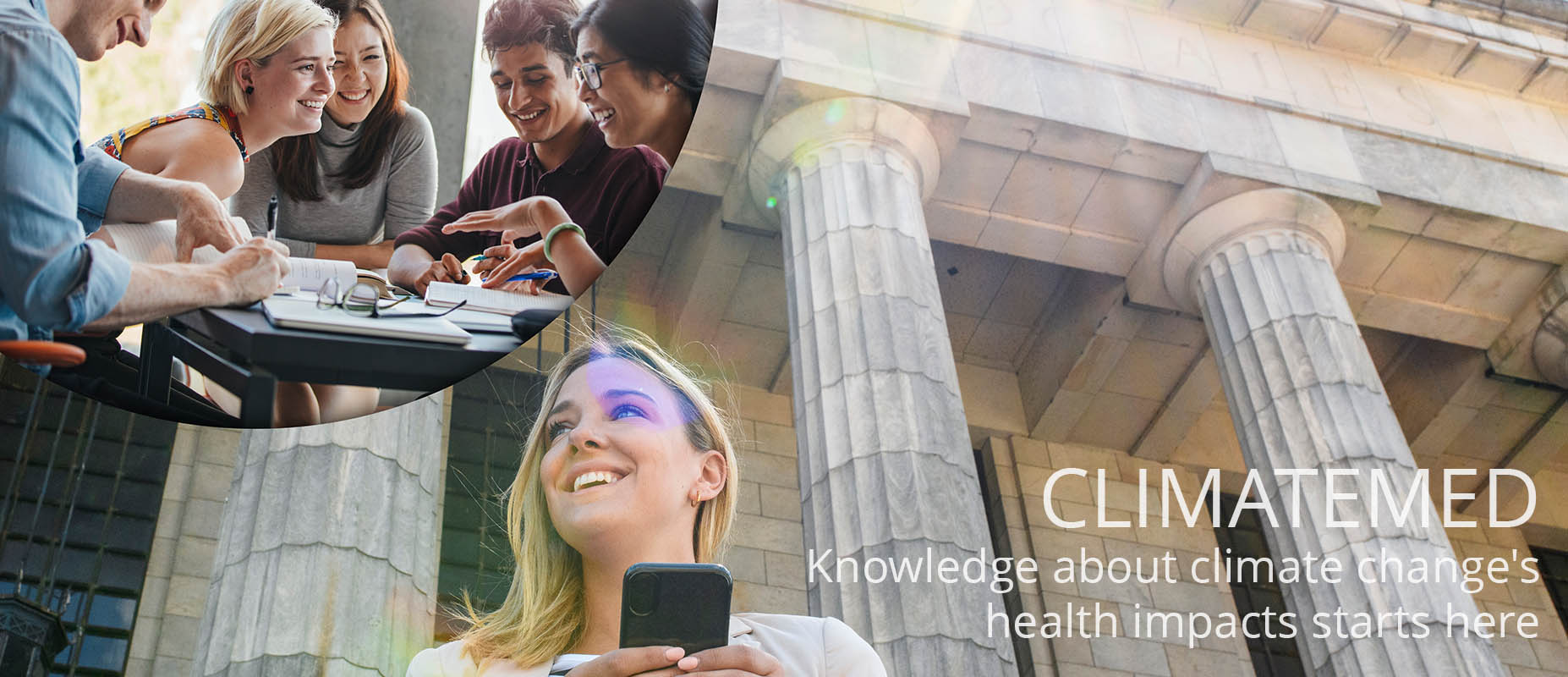
climatemed
Developing new curriculum outlines and learning materials on climate change's health impacts for medical schools
(1) New curriculum and learning materials for medical students on climate change's health impacts. This output will include a detailed curriculum for a lecture series, the modularised topics of the lectures, and associated learning materials.
All materials will be prepared in English and translated to Hungarian, Romanian and Serbian; the associated materials and e-learning materials version will be created jointly.
Programme:
Erasmus +
Action type:
KA220-HED - Cooperation partnerships in higher education
Project title
: Developing new curriculum outlines and learning materials on climate change's health impacts for medical schools
Project Acronym
: CLIMATEMED
Registration number
: 2021-2-HU01-KA220-HED-000050972
Duration of the project
: 01/03/2022 – 28/02/2025
Total budget
: 361 979 EUR
Coordinator
: University of Pécs, Hungary
Partners
: Center for Health, Exercise and Sport Science, Novi Sad, Serbia; Universitatea de Medicina, Farmacie, Stinte si Tehnologie George Emil Palade din Tirgu Mures, Tirgu Mures, Romania; National Public Health Center, Budapest, Hungary; University College Cork – National University of Ireland, Cork, Ireland
Professional Leader:
János Girán, PhD
Several studies suggest the next decade will be critical for immediate action to avoid "long-lasting and irreversible" risks to humans and ecosystems. According to WHO predictions, due to climate change's multifactorial health impacts, 250,000 additional deaths are estimated per year between 2030 – 2050. Moreover, the increased incidence of the recent infectious and chronic diseases and new ones' emergence is also expected. Consequently, climate change presents unprecedented health risks and requires urgent attention to address them.
However, in 2018, the Standing Committee of European Doctors, an organisation of European national health organisations, made a professional case to EU decision-makers to add “knowledge on the impacts of climate change” in the training of health professionals. Currently, in the curricula of most medical schools, the health-related impacts of climate change represent a peripheral part: according to a 2019 survey, only 15% of the 2,817 medical schools globally have a course that teaches climate change and health topics.
The CLIMATEMED project, with its learning material development and training design activities, can strengthen the medical universities' capacities to ensure up-to-date knowledge of how climate change can endanger human health and how physicians can deal with these novel health challenges.
The project includes four main work phases: the first phase focuses on the preparatory work for the development of outputs. The activities include collecting data and information from members of the target groups on what they know about climate change and health issues, what their needs and suggestions are for integrating this issue into the curriculum of a medical school. The second phase will be devoted to the development of outputs such as
(2) Training and education materials for academic staff of medical schools. This output will contain a detailed guideline of the education and training programme for academic staff, including an action plan, methodological support, training objectives, exercises, multimedia contents and assessment tools.
(3) Teachers' guide on how climate change-related health topics can be integrated into the curricula.
(4) Training materials for medical doctors' postgraduate learning programmes. The training materials for medical doctors' will be developed, including distance learning guidance for educators.
The outputs of the CLIMATEMED project will make it easier for medical universities in the European Union to integrate climate change and health issues in their curricula and support it as a horizontal priority act.
news & events
Project Outputs are available for free download in four languages!
2025-04-29
Closing Conference
2025-01-23
It is time for our Closing Conference! We can't wait to meet all of our partners and collegues and discuss our successes in this Project! ❤️









